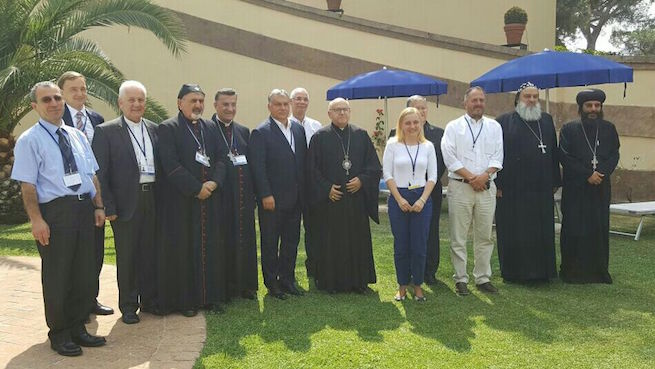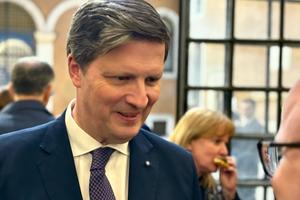Hungarian Government Creates New Department for Persecuted Christians
Also pledges 3 million euros to help persecuted Christians worldwide.

The Hungarian government has set up a special government department for persecuted Christians and given 3 million euros ($3.35m) to help Christians facing violence and oppression around the world.
The news comes after Hungary’s Prime Minister, Viktor Orbán, met Pope Francis and Middle Eastern patriarchs in Rome at the end of August.
The new state sub-secretariat, to be headed by Tamás Török, until recently Hungary's deputy ambassador to Italy, will be part of the Hungarian Ministry for Human Capacities, a key government ministry responsible for education and church issues. The ministry is led by Zoltán Balog who accompanied Orbán to Rome last month.
Already one million euros has been freed up for the new department which will monitor, analyse and obtain information on the situation facing persecuted Christians. It will also fund high level government delegations to visit troublespots.
Eduard von Habsburg, Hungary’s ambassador to the Holy See, told the Register Sept. 6 that the idea for the new department “is a consequence of several years of the Hungarian government quietly helping Christians in the Middle East.”
He said the government has often helped to secure visas for persecuted Christians and those of other minorities in danger. Von Habsburg also said the Hungarian government “follows the philosophy that the best way to give them a chance is to help them to stay at home, in their countries and to find help there… to help them have the chance of receiving help on the spot.” Last month he said the Hungarian government had helped build a Christian school in Erbil, Iraq.
Orbán took the decision to set up the new department after meeting Pope Francis, and after taking part in the International Catholic Legislator’s Network which meets at the end of August in Frascati near Rome. The group was founded in 2010 by Cardinal Christoph Schönborn of Vienna.
Both Orbán and Balog, a Calvinist pastor, are the only non-Catholic politicians to regularly take part in the annual event.
The Hungarian premier also took the decision after meeting Aug. 27 in Frascati with several Christian leaders from the Middle East. They included Ignatius Ephrem Joseph III Younan, Patriarch of the Syriac Catholic Church; Bechara Boutros al-Rahi, Maronite Patriarch of Antioch; and Jean-Clément Jeanbart, Archbishop of the Melkite Greek Catholic Archeparchy of Aleppo.

Orbán is one of the few European leaders to take a clear stand for persecuted Christians and to strongly resist uncontrolled immigration from the Middle East into Europe, widely seen as an exploitable means to Islamize Europe and to allow Islamist terrorists to enter the continent.
In a widely publicized speech in March, the Hungarian leader criticized how it is now “forbidden to speak the truth” about the issue, and accused the European Union of trying to “reshape the religious and cultural landscape of Europe, and to re-engineer its ethnic foundations.”
Mass migration “is masquerading as a humanitarian cause, but its true nature is the occupation of territory,” he said, and urged a curbing of the power of Brussels, the EU’s headquarters. “The main danger to Europe’s future does not come from those who want to come here, but from Brussels’ fanatical internationalism.”
He warned that those who have “come here with the intention of changing our country, shaping our nation in their own image, those who have come with violence and against our will — have always been met with resistance.”
In an Aug. 30 interview with the German Catholic daily Die Tagespost, von Habsburg said the Holy See has “some sympathy for the concrete problems of Hungary, arising from its size and geographical location.” He also said that although Pope Francis has consistently encouraged Western governments to welcome the vast numbers of people fleeing the Middle East, the Vatican’s official position on the issue has become “more nuanced in the course of recent months.”
Photo: Viktor Orbán meeting Christian leaders in Frascati last month. Credit: Hungarian Government


















